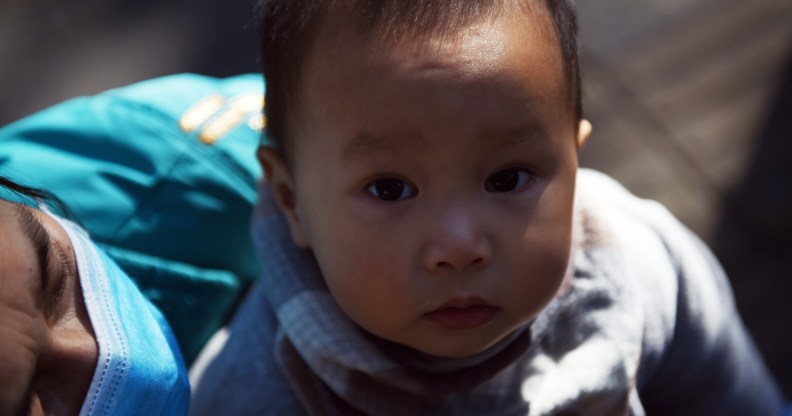How the end of China’s one-child policy could benefit LGBT people

Dr Timothy Hildebrandt of the London School of Economics writes for PinkNews about the end of China’s one-child policy – and the implications for the country’s LGBT community.
The Communist Party intended to help the struggling Chinese economy when it overturned the country’s infamous one child policy this week.
The decision to rescind the policy will undoubtedly be welcomed by the country’s growing middle class, the next generation of Chinese who will now have the prospect of knowing what it means to have a sister or brother, and corporations who are relishing an even larger market.
But one group that the party never considered is also likely to benefit: China’s lesbian, gay, bisexual and transgender (LGBT) community.
The ‘one-child’ policy never mentioned homosexuality. But its ill effects over the decades have fallen disproportionately on the country’s LGBT community.
Numerous surveys of gays and lesbians in the country consistently reveal that family pressure is of utmost concern.
Indeed, in the decade’s-long research I have conducted on LGBT issues in China I found that gay and lesbian citizens consistently ranked family pressure as the biggest obstacle they face.
One chance at raising a child who meets all of expectations and dreams of parents put enormous burdens on Chinese gays and lesbians, keeping them in the closet and contributing to high rates of depression and suicide. The pressure to produce grandchildren is especially acute.
The desire for grandchildren isn’t, of course, limited to China. Grandparenting has been shown in some recent studies to help stave off depression and reduce the likelihood of Alzheimer’s disease.
But the obsession for grandchildren often leads to pressure on gay and lesbian children to conform to a heterosexual life and produce offspring.
In China, where ancestral worship is still common, the expectations for continuing the family line are often extreme.
Yet still, what explains the push to be grandparents transcends worrying about after death – in fact, it is the tangible, material concerns that are perhaps even stronger.
And these can be explained well by another policy change in the last decade that creates a decidedly material incentive to pressure their one child into living a straight life and producing a grandchild: the government’s dismantling of cradle to grave support, often referred to as the ‘Iron Rice Bowl.’
Eldercare, once guaranteed by the state, has been severely cut. This has been done in part because of the assumptions that in a Confucian society such as China’s where familial ties are strong, one’s children and their grandchildren can fill the gap left by the state and take care of them later in life.
And so, in essence, the pressure that gay and lesbian Chinese feel is not just because of perhaps hurting the family’s reputation, but something very material: the parents view a gay or lesbian child as a potential threat to their care as they age.
Because both in vitro fertilization (IVF) and adoption are difficult, and occupy a legal grey area for singles and same-sex couples, ‘traditional’ and ‘natural’ male-female births are seen as the only option for parents.
In its 35-year history, the ‘one-child policy’ has long been used by government critics in the international community as evidence of its callous view of human rights.
Activists have derided the effect that it has had on unwanted pregnancies and children: stories of sex-selective abortions, abandoned newly born girls in public toilets, and even female infanticide have become regular news fodder.
But Beijing’s decision to rescind the ‘one-child policy’ has far more to do with demographic forces than human rights concerns, whether concerned with forced abortions or social pressure on LGBT people.
The policy was intended to curb population growth that the Chinese Communist Party could not afford whilst also developing a modern economy.

It is being rolled back this week because, ironically, the government can’t afford to keep it in place. With fewer young people entering the work force, the country is less able to support the larger number of aged citizens, what demographers call an ‘inverted population pyramid.’
Yesterday’s policy shift will certainly not be an instant panacea for gays and lesbians in China.
Family pressures will likely remain, and changing the policy will unfortunately be too late for the current generation of LGBT young adults; but hopefully the possibility to have an ‘heir and a spare’ will ease the pressure placed on gay and lesbian Chinese, allowing them to live a more open and less stressful adult life.
Although it was not the intent of policymakers in Beijing, easing limitations on births should go far in helping build a more respectful environment for Chinese LGBT across the country.
Dr Timothy Hildebrandt is Assistant Professor of Social Policy and Developoment in the Department of Social Policy at the London School of Economics.

